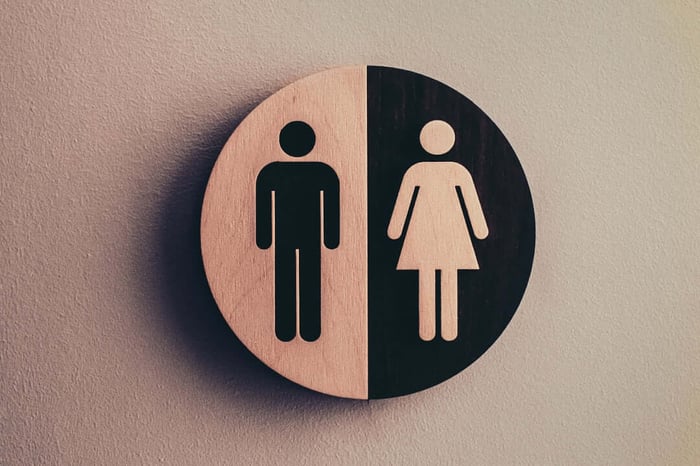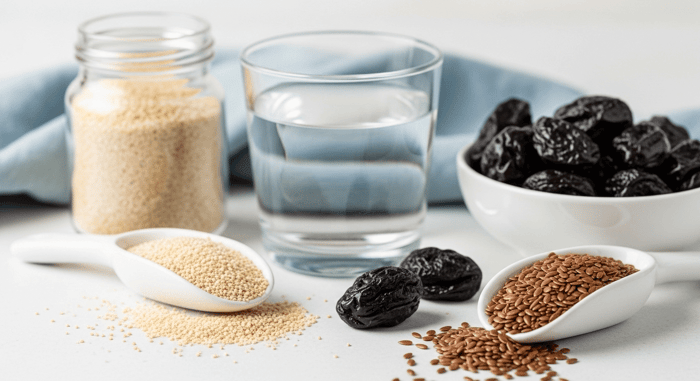Most people don't want to talk about their digestive system issues. But as scientists continue to discover links between our gut health and our overall health it becomes more and more important to pay attention to our stomachs.
Sometimes your stomach will warn you of a wider-reaching issue. But more often than not, a stomach issue is just that: an issue in your stomach.
Some of these issues might be serious. Or they might be as simple as an undiagnosed food allergy. The trick is learning to tell the difference.
From frequent bathroom trips to hard stomachs, this article will cover the most common digestive symptoms that you don't want to ignore.
1) Constant Bathroom Trips
An unfortunate after-effect of eating is, eventually a trip to the restroom. But these trips should be hours later, if not the next day. And they shouldnt be unpleasant or drawn-out.
Put a little less delicately, there is something wrong if you end up in the bathroom an hour or so after every meal. And there is definitely something wrong if you experience frequent diarrhea.
This sort of thing is embarrassing to talk about. So are the frequent runs to the bathroom and the old habits of making sure youre home not long after you eat.
The good news is that there is probably a very easy fix. Most of the time when this happens to someone it is because they have an undiagnosed food allergy.
If it doesnt seem triggered by one specific food, you may have IBS. This is harder to deal with but is generally not life threatening.
The only way to be certain is to track your food intake and compare it to when your stomach gets upset. Take your findings to a doctor and work together to find a solution!
2) Black Stool Or Black Flecks
When discussing digestive issues, it can be challenging to convey information in a tactful manner. Therefore, when mentioning the variance of colors in fecal matter, please receive this information with the utmost composure.
Although it may not be an enjoyable topic, comprehending the significance of different stool colors is crucial for monitoring one's gastrointestinal well-being. While healthy stools exhibit a range of hues, black is not one of them. Although certain supplements, such as iron, can cause stool discoloration, if no such supplements are being consumed, consulting a medical professional is recommended.
Black stool, whether entirely black or containing coffee-like flecks, is indicative of blood mixing with fecal matter. The presence of dried blood is represented by the coffee-like flecks, while a more uniform color may suggest a higher proportion of recent blood mixing. However, blood in the stool is not always black, as it can also be red, resulting from conditions such as hemorrhoids or small tears in the anal tissue.
Regardless of the color, bloody stools warrant prompt medical attention. The underlying causes can range from minor inconveniences to severe conditions, underscoring the importance of seeking professional medical care expeditiously.
3) Odd Pains
Sometimes the issue youre facing isnt what comes out after you eat. Its what youre feeling in your stomach and the area around it.
These issues are most likely gas. But when theyre not gastheyre either too severe or they last too longthey might be something that requires a little more attention.
Pulsing Pain
The human stomach can manifest various unusual symptoms. However, in the event of sharp, pulsating bursts of abdominal pain that persist and are not alleviated by passing gas, it is advisable to seek immediate medical attention. In this scenario, seeking emergency care may be necessary.
Sudden, intense pulses of pain could be an aneurysm in your gut. And while these might be less serious than a brain aneurysm, its still bad news. Aneurysms in your stomach might burst which can lead to major internal bleeding.
They are, thankfully, relatively rare. Such aneurysms are more common after 65 though. So pay attention to pain in your gut!
Another kind of pain you need to watch out for is a sudden pain high in your stomach. This could be a sign of gallstones.
Gallstones need to be treated by a medical professional. There are several treatment options if you suffer from gallstones but a doctor is the only one who can decide the best treatment option for your specific situation.
Pain Low On The Right Side
Pain that starts on the lower right side of your stomachand sticks aroundmight not be your stomach at all. This is one of the first symptoms of appendicitis.
Now, appendicitis might be common in popular media but not everyone will develop it in their lifetime.
If you are one of the unlucky sufferers, however, you will end up heading to the ER. The appendix will have to come out after which you should be fine.
4) Swelling & Hardness
If youve ever eaten too much, you know the feeling of being overly full. If that feeling persists hours after a meal if its constant. or if your stomach is hard to the touch, then you might have a bigger issue on your hands.
A swollen, hard stomach means that youre not digesting and passing the food that you eat. You might just need more fiber.
But if Metamucil and a side salad arent cutting it then you need to get a doctor involved. Sometimes these issues can be so bad that they affect the smell of your breath, your sleep, and your appetite.
The causes range from an infection to food allergies to more serious issues like growths and cancer. Its not something you want to try and clear up over a long period of time. A doctor can help you figure out the cause and get you started on a treatment.
The Takeaway
You might not want to talk to many people about your tummy troubles but you dont want to ignore them either.
Whether you have an allergy you didnt know about or youre dealing with something more serious the best solution is to face it head on.
If you experience any of these issues, particularly one that tends to come and go or lasts for some time a journal can help. You can track your symptoms and then take it to a doctor which will help remove a lot of guesswork.
This is especially true if you also track when and what you eat.
With this information, a doctor can either rule out or confirm an allergy. Once that has been determined you can work together to find out whats causing your issues and the best way to solve them.
An Easy & Effective Tip For Easing Digestive Issues (And Losing Weight)
While some digestive problems definitely warrant a visit to the doctor There's one specific thing you can do at home to improve your digestive health and avoid common problems like bloating frequent diarrhea and emergency bathroom trips.
Numerous individuals prefer not to undergo radical cleansing regimes or ingest an excessive amount of pills, and are interested in probiotics as a more appealing alternative. Research has shown that selecting the appropriate probiotic supplement can alleviate digestive discomfort and enhance digestive health, resulting in less bloating and regularity.
However, it is essential to identify the appropriate probiotic strain to achieve optimal results. Every probiotic supplement has varying strains, and some may include unsafe fillers. Opting for the incorrect strain could impede progress or worsen digestive concerns.
Consequently, extensive research was conducted to identify the best probiotic supplement for enhancing digestive health, leading to a product backed by scientific research and recommended by healthcare professionals with an abundance of satisfied customers. This product has demonstrated a remarkable capacity to improve health and appearance, without necessitating any significant lifestyle changes."
Click Here To See The Probiotic Supplement That Can Help Improve Your Digestive Health





